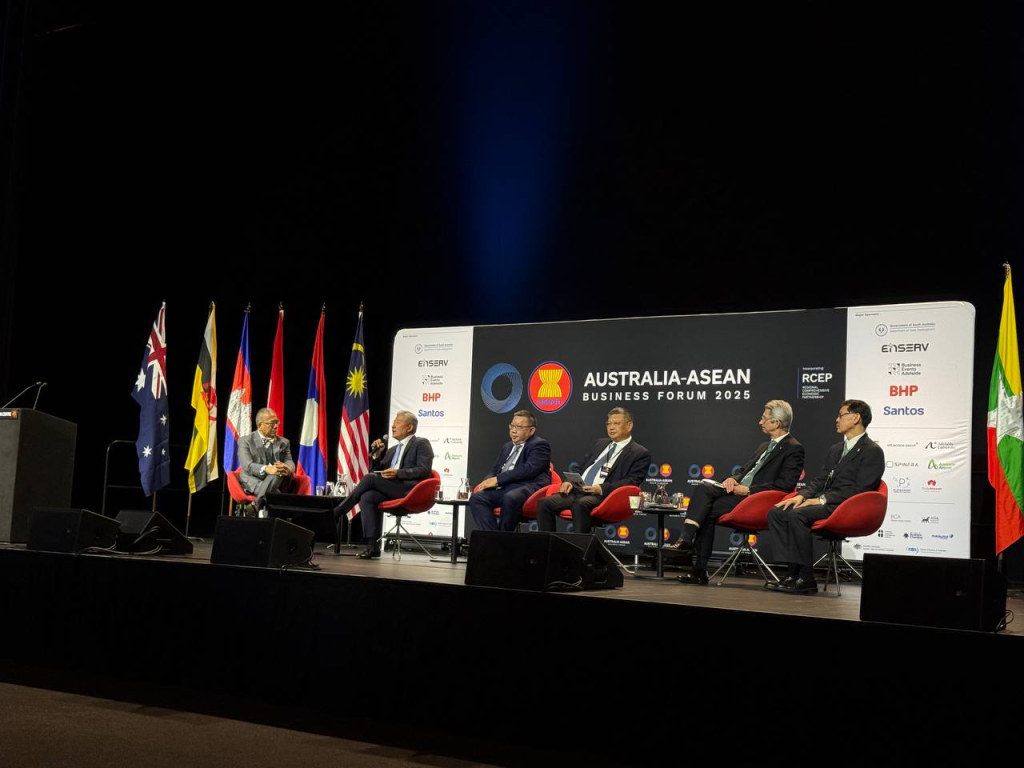Cambodia Investment Review
Cambodia’s Senior Minister in charge of Special Missions and Chairman of the Trade Policy Advisory Board, Sok Siphana, has emphasized the importance of the Regional Comprehensive Economic Partnership (RCEP) in driving resilient growth for Cambodia, ASEAN, and Australia, while navigating global trade headwinds. His remarks came during a keynote address at the Australia-ASEAN Business Forum held in Adelaide, South Australia, on August 26–27, 2025.
Global Trade Shifts and Protectionist Pressures
Sok highlighted the turbulent international trade environment, pointing to the erosion of trust in multilateral institutions and the resurgence of protectionism in major economies. He warned that shifting U.S. trade policies, including reciprocal tariffs, have redefined the global order and forced countries to reassess strategies.
“RCEP may not be perfect, but it works and will improve with time,” Sok said, noting that the agreement serves as both an economic and geopolitical stabilizer against protectionism. With 30% of global GDP and population under its umbrella, RCEP provides an integrated framework that complements high-standard agreements like the CPTPP.
Australia’s Strategic Role Under RCEP
For Australia, Sok noted that RCEP has boosted integration into ASEAN-centered supply chains, particularly in electronics, manufacturing, and services. He pointed to expanded market access for Australian wine, beef, dairy, seafood, and horticultural products, while critical minerals and LNG exports continue to support ASEAN’s clean energy transitions.
On the services side, ASEAN’s growing demand for Australian education, training, and digital services has been strengthened by RCEP’s provisions on services and cross-border digital trade. Sok linked these gains to broader policy efforts such as Australia’s Southeast Asia Economic Strategy to 2040 and Future Made in Australia plan, which aim to deepen economic engagement and position the country as a leader in green industries.

Cambodia’s Growing Trade Prospects
Sok stressed Cambodia’s expanding role within RCEP as it adapts to shifting U.S. trade dynamics. Cambodian exports to RCEP countries reached $9 billion in 2024, with China, Vietnam, Japan, and Singapore as leading destinations. Key exports to Australia include apparel, footwear, bicycles, and agricultural goods.
He identified untapped opportunities in processed foods, organic rice, cashews, dried fruits, and packaged snacks, as well as services such as tourism and digital outsourcing. With streamlined customs procedures and stronger rules of origin, Sok argued Cambodia is well-positioned to attract further foreign direct investment from Japan, Korea, and China into its manufacturing and agro-processing sectors.
Looking Ahead
Sok concluded that RCEP offers long-term strategic benefits beyond tariff cuts, with potential future upgrades covering new areas of the economy. He called for greater awareness among businesses across RCEP countries to fully leverage its provisions.
“The RCEP will provide long-term strategic benefits that go beyond the immediacy of tariff reductions seen in many ASEAN+1 FTAs,” he said, underlining ASEAN’s central role in fully integrating RCEP and shaping its expansion to new members.





